The Crucial Role of Soft Skills in Healthcare Hiring: Building a Compassionate and Effective Team
In the ever-evolving landscape of healthcare, the importance of soft skills in the hiring process cannot be overstated. While technical expertise and qualifications are undoubtedly crucial, the ability to navigate the complexities of human interaction is equally vital. This article explores the significance of soft skills in healthcare hiring, shedding light on how they contribute to creating a more compassionate, patient-centered, and effective healthcare team.
1.Patient-Centered Care
Soft skills play a pivotal role in delivering patient-centered care. Empathy, communication, and active listening are essential for healthcare professionals to connect with patients on a personal level. A compassionate healthcare team can significantly enhance the patient experience, leading to improved satisfaction and better treatment outcomes.
2. Effective Communication
Clear and effective communication is at the core of any successful healthcare team. Whether it's conveying critical information during a medical emergency or collaborating with colleagues to develop treatment plans, healthcare professionals need strong communication skills. Soft skills such as teamwork, collaboration, and the ability to articulate complex information in a comprehensible manner contribute to a more cohesive and efficient healthcare environment.
3. Building Trust and Rapport
Establishing trust between healthcare providers and patients is paramount. Soft skills like trustworthiness, reliability, and approachability are essential for fostering positive relationships. Patients are more likely to follow through with treatment plans and share critical information when they feel a sense of trust and rapport with their healthcare providers.
4. Conflict Resolution
Healthcare settings often involve high-pressure situations that may lead to conflicts among team members. Soft skills such as conflict resolution, emotional intelligence, and diplomacy are essential for navigating these challenges. A team that can effectively manage conflicts is better equipped to provide seamless and quality patient care.
5. Adaptability and Resilience
The healthcare industry is dynamic, with constant advancements and evolving challenges. Soft skills like adaptability and resilience are crucial for healthcare professionals to thrive in this ever-changing environment. Individuals who can adapt to new technologies, protocols, and unexpected situations contribute to a more resilient and agile healthcare team.
6. Leadership and Mentorship
Soft skills are fundamental for effective leadership and mentorship within healthcare teams. Leaders who possess strong communication, empathy, and motivational skills can inspire their teams to excel. Additionally, mentorship relies heavily on soft skills, as experienced healthcare professionals guide and support their less-experienced colleagues, fostering professional development and growth.
In the realm of healthcare hiring, emphasizing soft skills alongside technical qualifications is essential for building well-rounded and effective teams. The ability to connect with patients, communicate effectively, resolve conflicts, and adapt to change are all critical components of a successful healthcare professional. By recognizing and prioritizing the role of soft skills in the hiring process, healthcare organizations can ensure that their teams not only possess the necessary technical expertise but also the interpersonal skills needed to provide exceptional patient care in an ever-evolving healthcare landscape.
Statistics Highlighting the Role of Soft Skills in Healthcare Hiring
Importance in Skill Requirements: Over a quarter of healthcare skills requirements in job postings are now soft skills, highlighting their growing importance in the healthcare sector.
Communication: Effective communication is crucial, with a significant impact on patient safety and satisfaction. Errors in communication are a factor in 70% of adverse events in healthcare settings.
Empathy in Patient Care: Empathy is not just about patient comfort; it's linked to decreased malpractice complaints, improved health outcomes, and increased patient satisfaction.
Cultural Competence: Healthcare professionals need to be culturally competent and inclusive, understanding diverse backgrounds to provide effective treatment for all patients.
Impact on Patient Satisfaction: Patient satisfaction, which is crucial for long-term health outcomes, is positively influenced by healthcare providers' soft skills, such as listening and showing respect and empathy.
Navigating Change: Soft skills like adaptability, creativity, and decision-making are essential in navigating the rapid changes and advancements in healthcare.
Teamwork and Collaboration: Effective teamwork in healthcare relies on soft skills such as strategic thinking, communication, and collaboration, especially in high-pressure situations.
In summary, soft skills are increasingly recognized as vital components in healthcare hiring, impacting various aspects of patient care, safety, satisfaction, and the overall functioning of healthcare teams and organizations.
References
- Case Western Reserve University. "Why are Soft Skills Important in Healthcare?" Available at: Case Western Reserve University
- Berea College. "Why Soft Skills are Essential in Healthcare – Office of Internships & Career Development." Available at: Berea College





